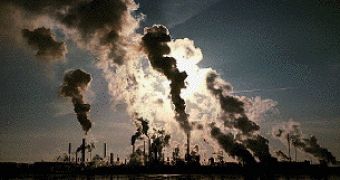According to an international team of researchers, air pollution is now a major global health risk, meaning that it can be held accountable for roughly 3.2 million premature deaths yearly.
To be more precise, measurements and investigations carried out in East Asia revealed that, in this part of the world, air pollution is the fourth major public health risk.
In fact, heavily industrialized countries such as China take the lead when it comes to air pollution-related premature deaths.
Outside East Asia, air pollution was found to be the eight major public health risk, so one could argue that the situation is not all that bad.
On the other hand, this team of specialists found that, at least as far as premature deaths outside East Asia are concerned, air pollution trumps high-blood cholesterol.
Since keeping a close eye on what one eats is a much easier thing to do than making sure one does not inhale any harmful chemical compounds, these findings should not come as a big surprise.
Up until now, it was a well-known fact that air pollution constitutes a threat to public health, yet few could have guessed just how serious this issue is.
The specialists who looked into this issue explain that, more often than not, soot (and not harmful chemical compounds) is what causes millions to die on a yearly basis as a result of air-pollution related health problems.
For those unaware, soot is basically fine particulate matter which accumulates in one's lungs, and which can easily make it way into an individual's bloodstream, SwitchBoard explains.
Although there are many types of soot, the most dangerous is the one emitted whenever diesel is burnt.
This diesel soot is a common presence in crowded urban areas, and researchers believe that it can be linked to roughly half of the premature deaths caused by air pollution.
“There is a wide range of risks that affect global health. However, this landmark analysis places air pollution among the top risk factors in the world today with the greatest impacts among people in the developing countries of Asia, underscoring the need for effective action to reduce exposure,” argued Bob O’Keefe, vice president of the Health Effects Institute and chair of Clean Air Asia.

 14 DAY TRIAL //
14 DAY TRIAL //